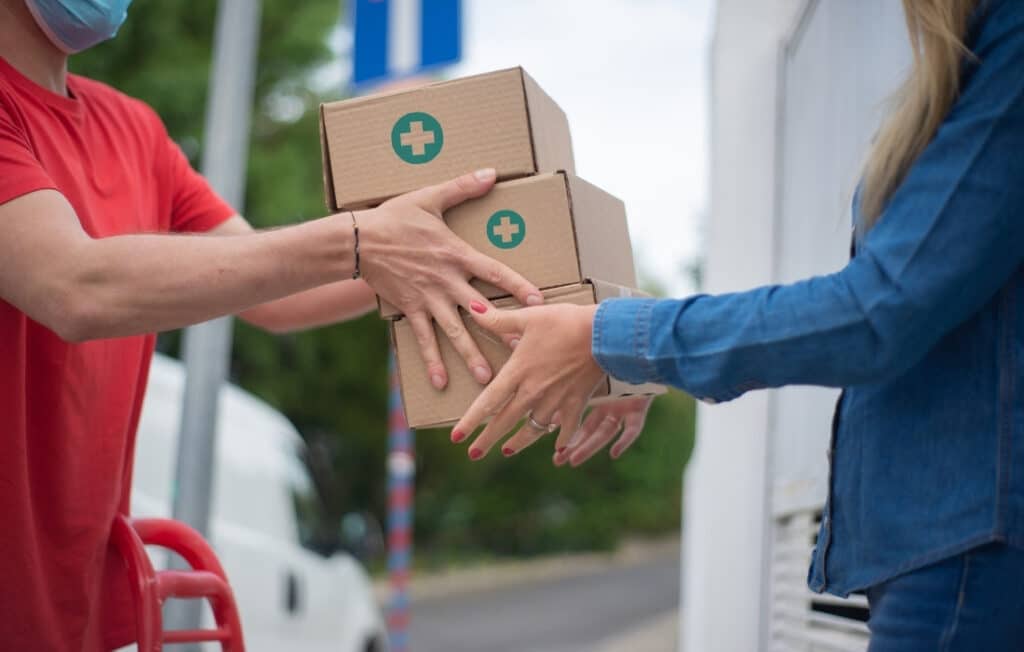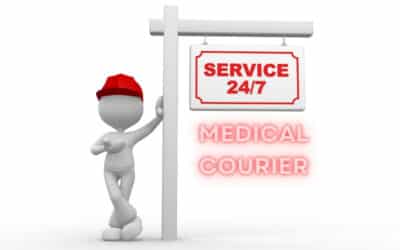The handling and transporting medical waste are critical components of healthcare operations, with couriers playing a pivotal role. This article delves into the best practices for Medical Waste Disposal for Couriers, examining regulations, equipment, training, and innovative strategies to ensure safety and compliance. Understanding these practices is essential for couriers to effectively manage the risks of transporting potentially hazardous materials.
Medical Waste Disposal for Couriers: An Essential Guide
Medical waste disposal for couriers involves stringent protocols to ensure public safety and environmental protection. Couriers must adhere to federal and state regulations while transporting hazardous medical waste. This guide emphasizes the importance of compliance, proper handling, and transportation methods.
- Understand regulatory compliance– Complying with regulations ensures safety and legality.
- Adopt secure handling methods- Ensures the safe transport of hazardous materials.
- Implement tracking systems– For accountability and traceability of medical waste.
- Use appropriate containment solutions– Essential for preventing spills and exposure.
- Prioritize training and awareness- Equips couriers with the necessary skills and knowledge.
- Establish emergency response plans– Prepare for unforeseen incidents during transit.
Understanding the Regulations Surrounding Medical Waste Transportation
Navigating the complex regulatory landscape is crucial for couriers handling medical waste. These regulations vary by state and type of waste, necessitating a comprehensive understanding. Compliance ensures legal adherence and the safety of the courier and the public.
- Identify federal and state regulations– Key to lawful operations.
- Distinguish between waste types- Different types require different handling.
- Stay updated on changes– Regulations can evolve frequently.
- Implement standard operating procedures– For consistent compliance.
- Engage in regular audits- To ensure ongoing adherence.
- Educate staff on legal requirements– Knowledge minimizes risks.
Essential Equipment and Tools for Safe Medical Waste Handling

Proper equipment and tools are vital for safely handling and transporting medical waste. It includes specialized containers, protective gear, and labeling materials. The right equipment ensures compliance and minimizes the risk of accidents and contamination.
- Invest in quality containers– Prevents leaks and spills.
- Use protective gear– Ensures courier safety.
- Label waste correctly– For proper identification and handling.
- Maintain equipment regularly- To ensure optimal functioning.
- Adopt spill kits- For immediate response to accidents.
- Implement vehicle safety measures- To secure waste during transit.
Training and Certification Requirements for Medical Waste Couriers
Training and certification are critical for couriers to safely handle and transport medical waste. This education covers taking hazardous materials, emergency response, and understanding regulations. Certified training assures that couriers are equipped with the necessary skills and knowledge.
| Requirement | Description |
| OSHA Training | Mandatory for handling hazardous materials |
| Certification Renewal | Keeping knowledge current |
| Hands-on Training | Practical experience in waste handling |
| Emergency Techniques | Skills for handling spills or exposures |
| Waste Categorization | Understanding different types of medical waste |
| New Protocol Awareness | Staying updated on the latest practices |
This table highlights medical waste couriers’ training and certification requirements, including OSHA training, regular renewal of certifications, hands-on training, learning emergency response techniques, understanding waste categorization, and staying informed on new protocols.
Practical Strategies to Minimize Risks in Medical Waste Transit

Minimizing risks during the transit of medical waste is essential for couriers. It involves careful planning, route optimization, and emergency preparedness. Effective risk management protects the courier, community, and environment.
- Plan routes carefully– Avoid unnecessary risks.
- Conduct risk assessments– Identify potential hazards in advance.
- Adopt best handling practices- Minimizes accidents and spills.
- Prepare for emergencies- Ensures readiness for unexpected incidents.
- Implement regular training drills– Keep safety procedures fresh.
- Maintain communication protocols– Essential for timely reporting of incidents.
Collaborating with Healthcare Providers for Efficient Waste Disposal
Efficient medical waste disposal requires collaboration between couriers and healthcare providers. This partnership ensures the seamless transfer and handling of waste. It also facilitates compliance with regulations and enhances the safety of the disposal process.
- Establish clear communication channels– For effective coordination.
- Define roles and responsibilities– Clarifies expectations.
- Share best practices– Improves overall disposal process.
- Coordinate on waste segregation– Essential for proper disposal.
- Implement joint training sessions- Enhances mutual understanding.
- Develop contingency plans together– Prepare for potential disruptions.
Innovative Technologies in Medical Waste Disposal for Couriers
Incorporating innovative technologies can revolutionize the way medical waste is handled and disposed of by couriers. These technologies include advanced tracking systems, automated handling equipment, and improved containment methods. They contribute to increased efficiency, safety, and compliance.
| Technology | Description |
| GPS Tracking | Enhances traceability and accountability |
| Automation | Reduces human error in handling |
| Advanced Containment | Improves safety and compliance |
| Data Management | Better record-keeping and tracking |
| Eco-friendly Methods | Minimizes environmental impact |
| Technological Advancements | Keeping operations modern and efficient |
The table lists innovative technologies in medical waste disposal for couriers, including GPS tracking systems, automation in handling, and advanced containment.
Environmental Considerations in Medical Waste Disposal Practices
Environmental considerations are paramount in the disposal of medical waste. Couriers must adopt practices that minimize the ecological impact; this includes using eco-friendly disposal methods, reducing emissions, and promoting sustainability.
- Implement green disposal methods– Reduces environmental harm.
- Minimize carbon footprint- Essential for sustainable operations.
- Adopt recycling practices- Lessens waste.
- Use eco-friendly vehicles- Lowers emissions.
- Promote waste reduction strategies– Contribute to environmental conservation.
- Engage in regular environmental audits– Ensures compliance with green standards.
Emergency Protocols for Accidental Spills or Exposures During Transit

Emergency protocols are crucial for responding to accidental spills or exposures during the transit of medical waste. These protocols include immediate containment, notification procedures, and cleanup operations. Preparedness for such emergencies is critical to mitigating risks and ensuring safety.
- Establish clear emergency procedures– Ensures quick and efficient response.
- Train couriers in spill management– Prepares for on-site incidents.
- Equip vehicles with emergency kits– For immediate containment and cleanup.
- Implement rapid notification systems– Critical for informing relevant authorities.
- Conduct regular emergency drills– Keeps procedures fresh and understood.
- Document and review incidents– For continuous improvement.
Future Trends in Medical Waste Management for Courier Services
The future of medical waste management for couriers will likely see advancements in technology, regulations, and practices. Trends include adopting more sustainable methods, increased regulatory scrutiny, and technological innovations. Staying ahead of these trends is crucial for couriers to remain compliant and efficient.
- Monitor regulatory developments– Stays ahead of legal changes.
- Adopt sustainable practices– Align with environmental trends.
- Invest in emerging technologies– Keeps services modern and efficient.
- Participate in industry forums- Stay informed on future trends.
- Collaborate with research institutions– For innovative solutions.
- Focus on continuous improvement- Ensures long-term success and relevance.
Effective Medical Waste Disposal for Couriers is a multifaceted process that demands compliance with regulations, proper training, and specialized equipment. By embracing these practices, couriers can ensure medical waste’s safe and efficient transportation, improving public health, the environment, and healthcare quality. As this field evolves, staying informed and adaptive to new trends and technologies will remain crucial for couriers.
Ready to ensure the utmost safety and compliance in your medical waste disposal process? Contact the team to book a consultation with Aceso Courier today and elevate your healthcare waste management to new standards of excellence!










